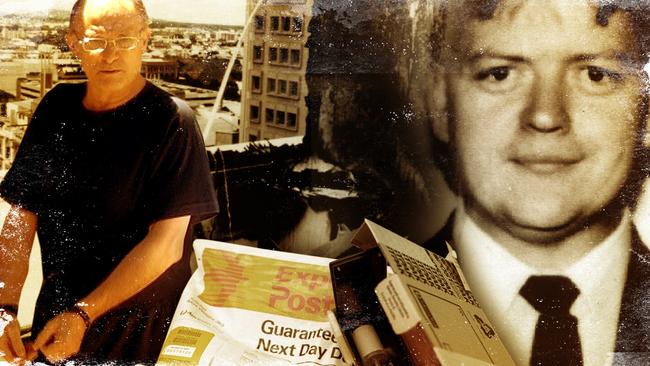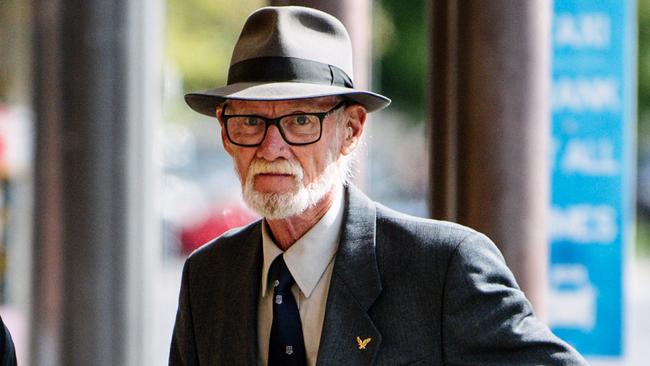NCA bombing: Witness Allan Chamberlain tells court he felt under duress and psychologically threatened by police when interviewed about Domenic Perre
The NCA bombing trial’s key witness says he felt ‘psychologically’ threatened when police asked about Domenic Perre, but insists he was not told to ‘point the finger’.

Police & Courts
Don't miss out on the headlines from Police & Courts. Followed categories will be added to My News.
The NCA bombing trial’s key witness says he was “under considerable stress, duress and intimidation” and felt “psychologically” threatened by police when interviewed about Domenic Perre.
Allan “Gadget” Chamberlain has insisted, however, detectives only wanted him to “be more honest”, not “finger” the longtime suspect as the person responsible for the infamous crime.
In the Supreme Court on Thursday, barrister Gilbert Aitken, for Perre, continued cross-examining Mr Chamberlain about events surrounding the March 2, 1994 explosion.
He suggested police told Mr Chamberlain he would be accused of, and charged with, the bombing if he did not “point the finger at Perre”.
Mr Chamberlain said police had threatened to charge him but “I do not know if the bombing was mentioned” – prompting a strong response from Mr Aitken.

“That’s not something you would forget, I respectfully put to you,” he said.
Mr Chamberlain replied: “Mr Aitken, I respectfully put to you that I was under considerable stress and duress and intimidation at that time.”
Asked if that was due to the police, he replied: “Effectively, yes.”
Asked if he had been threatened, he replied: “No, not with physical violence, I believe it was psychological.”
Perre, 64, has pleaded not guilty to murder and attempted murder over the parcel bomb that killed Detective Sergeant Geoffrey Bowen and blinded lawyer Peter Wallis.
On Thursday, Mr Chamberlain conceded he was “verging on broke” in 1994, which led to him agreeing to hide Perre’s $200,000 gun collection on his property.
He also conceded he lied to police when first spoken to on March 6, 1994, but agreed to fully “co-operate” in an interview the following day.
“I understood ‘co-operation’ to mean me being more honest in answering and more forthright than I had been,” he said.
“I’ve already told you that I had lied to the police.”
The trial, before Justice Kevin Nicholson, continues.



